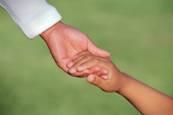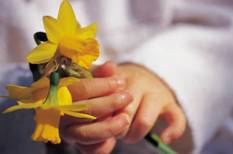Child Protective Services
North Carolina State law requires that every county provide Child Protective Services in order to ensure the safety of all children in the state. The Department of Social Services is the agency that receives all reports of neglect or abuse, investigates those reports and provides services to maltreated children to prevent abuse or neglect from recurring.
-
Neglect is the most common form of maltreatment, but it receives far less attention than abuse.
-
Children younger than 4 years are at greatest risk of severe injury or death.
-
Child abuse occurs in all ethnicities, cultures, education levels, and socioeconomic divisions of society.
-
The emotional pain and trauma suffered by children who are abused and neglected often troubles them throughout their lives.
Goals of Child Protective Services
- Ensure the safety of the child
- Reduce the risk of the abuse or neglect recurring
- Enable children to remain safely in their own homes
- Sustain positive changes that occur in a family and maintain the safety of children over time
Signs of Possible Physical Abuse:
- Unexplained bruises in various stages of healing
- Self-destructive behaviors
- Welts, human bite marks, bald spots
- Unexplained burns - especially cigarette burns or glove-like burns
- Unexplained fractures, injuries or abrasions
- Nervousness, hyperactivity, aggressiveness, disruptive and destructive behaviors
- Unusual wariness of physical contact
- Fear of parent or caretaker
- Lack of expressed emotion
- Unduly shy, withdrawn and passive behavior
Signs of Possible Sexual Abuse:
- Exhibiting sexual behaviors that are not appropriate for the child's age
- A detailed and sophisticated understanding of sexual behavior
- Reversion to behaviors such as bed-wetting, speech loss and thumb-sucking
- Sleep disturbances or nightmares
- Pain, itching, bruising or bleeding in the genital area
- Venereal disease
- Frequent urinary tract or yeast infections
Sexually abused older children may also:
- Exhibit delinquent or aggressive behaviors
- Show signs of depression
- Display self-injurious behaviors such as substance abuse, self-mutilation, suicide attempts, prostitution or running away
Signs of Possible Emotional Abuse:
- Speech disorders
- Delayed physical or emotional development
- Ulcers, asthma, severe allergies
- Habit disorders such as sucking or rocking
- Unduly passive and undemanding
- Very low self esteem
- Extremely demanding, aggressive or angry behavior
- Antisocial, destructive attitude
- Depressed or suicidal tendencies
- Attention seeking activities
- Delinquent behavior - especially in adolescents
Signs of Possible Neglect:
- Abandonment by parent or caregiver
- Unattended medical needs
- Consistent lack of supervision
- Consistent hunger, inappropriate dress, poor hygiene
- Lice, distended stomach
- Poor social skills
- Indiscriminate about his/her affection
- Pale, listless, begs or steals food, frequent absences from school
- Falls asleep in class, regularly displays fatigue
- Self-destructive behaviors

Remember: None of these signs conclude that child neglect/abuse is present, since any of them may be present even when a child is not neglected or abused. When they occur repeatedly or in combination with one another, the child may be suffering neglect/abuse.
Child Abuse/Neglect Reports (8am to 4:30pm): (828) 697-5572
Child Abuse/Neglect Reports (after hours): (828) 697-4911
Information needed to make a report:
- Name, address and age of the child(ren)
- Name and address of the child's parent, guardian, or caretaker
- The child's condition, including the history (if known), nature, and extent of the injury or maltreatment
- Information known about the family's lifestyle which could affect the safety of the child, and perhaps compromise a social worker's safety

